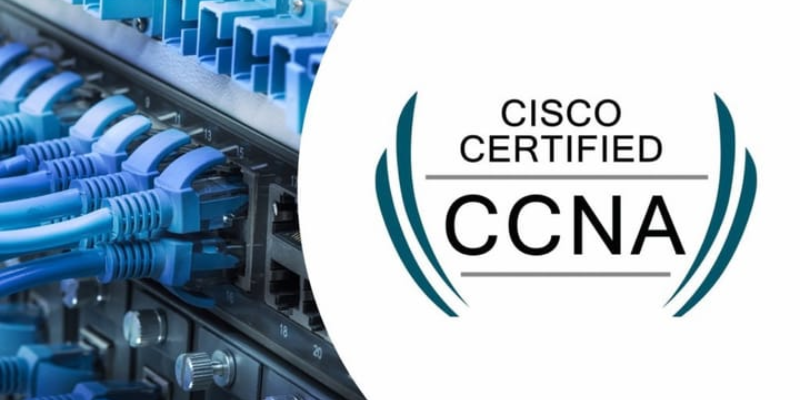
As businesses move more of their operations to the cloud, many people wonder if traditional networking certifications like CCNA (Cisco Certified Network Associate) still hold value. While the cloud has changed how networks are designed and managed, it hasn’t removed the need for strong foundational networking skills. The CCNA continues to be a respected and practical certification that helps IT professionals understand how networks really work, even in a cloud-focused environment. It builds a strong base that supports learning about newer technologies, including cloud networking.
Strong Networking Basics Remain Important
Even though cloud platforms handle much of the complex work behind the scenes, they still rely on strong networking principles. The CCNA Course in Coimbatore teaches core topics like IP addressing, routing, switching, and security. These are not outdated skills—they are essential for understanding how data moves from one place to another. Whether working in a cloud or on-premises setup, professionals need to understand what’s happening at the network level to solve problems effectively and build reliable systems.
Cloud Services Still Depend on Traditional Networks
Cloud platforms like AWS, Azure, and Google Cloud are built on huge physical networks. When you create a virtual machine or set up cloud storage, you’re still using underlying technologies like subnets, virtual routers, and firewalls. The CCNA helps IT professionals understand these concepts and how they connect. Knowing what happens behind the scenes makes it easier to design better cloud architectures, troubleshoot network issues, and ensure performance and security.
A Strong Foundation for Advanced Learning
The CCNA isn’t just a certification-it’s a stepping stone to more advanced areas in networking and cloud technologies. Many cloud certifications expect candidates to already understand the basics of networking. Without this knowledge, it’s harder to grasp topics like hybrid cloud environments, VPNs, or load balancers. Earning the CCNA Course in Pondicherry prepares professionals to take on higher-level roles or study for certifications such as Cisco CCNP, AWS Certified Advanced Networking, or Microsoft Azure Networking certifications.
Security Is Closely Tied to Networking
As businesses shift to cloud systems, cybersecurity becomes even more important. Network security is a core part of the CCNA, and it teaches concepts like access control lists, secure routing, and firewall rules. These are directly connected to cloud security as well. Without proper network security, even the best cloud solutions can be vulnerable. Professionals with CCNA knowledge can help protect cloud environments by setting up secure connections and monitoring network traffic.
Many Organizations Still Use Hybrid Networks
Not all companies have fully moved to the cloud. Many use a mix of on-premises and cloud systems. These hybrid environments require professionals who understand both traditional networking and cloud computing. The CCNA provides the skills needed to manage and connect different types of networks. Whether it’s setting up a VPN between a local office and a cloud data center or managing routers that connect different systems, the CCNA covers the essentials needed for success.
Helps with Real-World Troubleshooting
Technical issues can still happen in cloud environments, and not everything can be fixed with a few clicks. When something goes wrong, IT teams often need to investigate routing paths, diagnose latency problems, or manage bandwidth issues. The knowledge gained through the CCNA Course in Madurai helps professionals troubleshoot these problems more confidently. It teaches them how to think logically and look beyond surface-level errors.
Employers Still Recognize and Value the CCNA
The CCNA has been around for a long time, and it has built a strong reputation in the IT industry. Employers often list it as a requirement or a preferred qualification in job postings. It signals that the candidate has a clear understanding of networking fundamentals and is serious about their career. Even in a cloud-first job market, hiring managers still look for this certification when building strong IT and cloud support teams.
Blends Well with Cloud Certifications
Instead of choosing between CCNA and cloud certifications, many professionals find that combining both offers the best of both worlds. With a CCNA, they understand how networks work. With a cloud certification, they learn how to apply that knowledge in platforms like AWS or Azure. Together, these skills make someone more flexible, valuable, and ready to adapt to different work environments. Companies are looking for professionals who understand both the “old” and the “new” ways of managing technology.
The rise of cloud computing hasn’t replaced the need for core networking skills-it has made them even more important. The CCNA remains highly relevant because it teaches the building blocks of all network systems, including those found in the cloud. As IT continues to evolve, professionals with a strong understanding of networks will always be in demand. Whether you’re starting your career or looking to grow in cloud roles, the CCNA Course in Tirupur provides a solid path that supports future success in a technology-driven world.